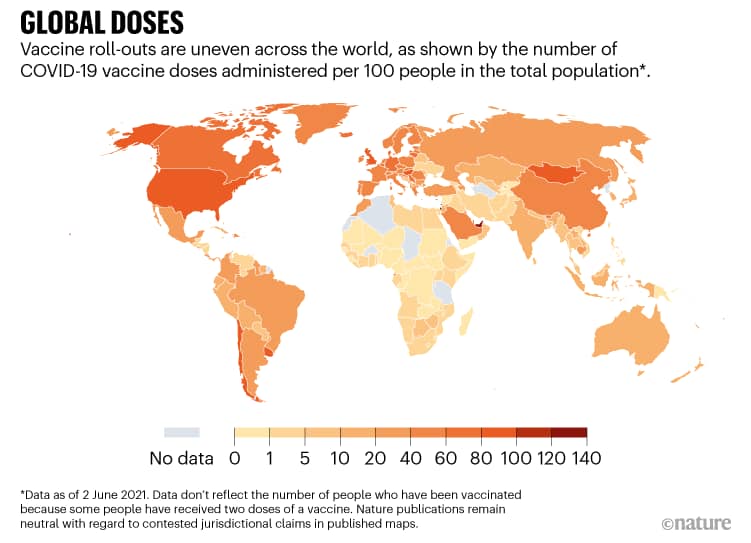A: Scientists at the World Health Organization say, ”No.”
Not enough people in underserved regions of the world have received vaccination to effectively change the course of the pandemic. A pandemic is a worldwide epidemic. So the solution to ending the pandemic must take into account the world’s population.
Citing a concern over the spread of the Delta variant across the country, the U.S. announced a plan to make booster vaccination available to all adults— not just the elderly or immunocompromised. This plan hinges upon approval by the Food and Drug Administration. Not long after this announcement, scientists at the World Health Organization stated that their review of the research reveals that boosters are not needed at this time. The WHO contends that Pfizer and Moderna vaccines show continued immunity against contracting SARSCoV2 and developing moderate to severe illness in breakthrough cases.
Some studies show a decrease in immunity among the elderly who were vaccinated with the two-dose vaccines. Effectiveness dropped to the equivalent of the flu shot after 7 months. However, other studies revealed that immunity remained strong after 8 months and as long as a year after receiving the two-dose vaccines.
Although the research results are conflicting, the distribution of vaccines is clearly weighted to benefit richer countries. In some Caribbean nations, vaccination rates remain as low as 0.1% while in some European nations, vaccination rates are as high as 90%.

The World Health Organization has repeatedly asked the U.S. and other wealthy nations to assist with the distribution of vaccines. Its highest decision-making body, the World Health Assembly, met in May for their annual conference. As expected, the agendas focused on a coordinated response to the pandemic. Though reports are brief, the statement by WHO Director-General Dr. Tedros Adhanom Ghebreyesus was clear. Earlier this month he said, “I understand the concern of all governments to protect their people from the Delta variant. But we cannot accept countries that have already used most of the global supply of vaccines using even more of it.”
The U.S. Senate Foreign Relations Committee is the committee of Congress that addresses the requests of the United Nations and its agencies like WHO. Recently, the committee made a rare bi-partisan move to place S. 2297, the International Pandemic Preparedness and COVID-19 Response Act, on the agenda. This bill outlines U.S. assistance in three areas: international response to the COVID-19 pandemic, preventing and preparing for future global health threats, and establishing multilateral financing for global health security and pandemic prevention.
Remember that “Think globally. Act locally,” is a good adage to follow, especially in the midst of a pandemic.
Links:
Global Health Council World Health Assembly
S.2297 – International Pandemic Preparedness and COVID-19 Response Act of 2021
Nature: Six months of COVID vaccines: what 1.7 billion doses have taught scientists


